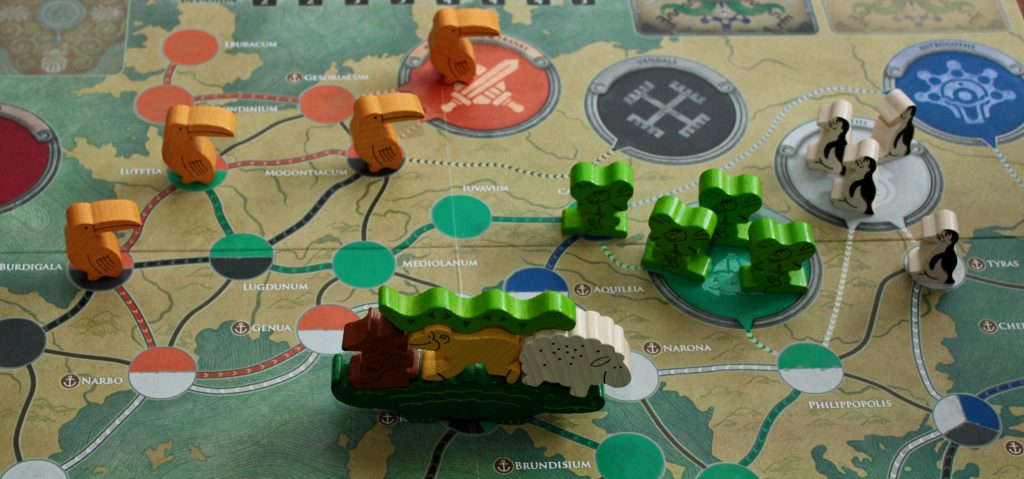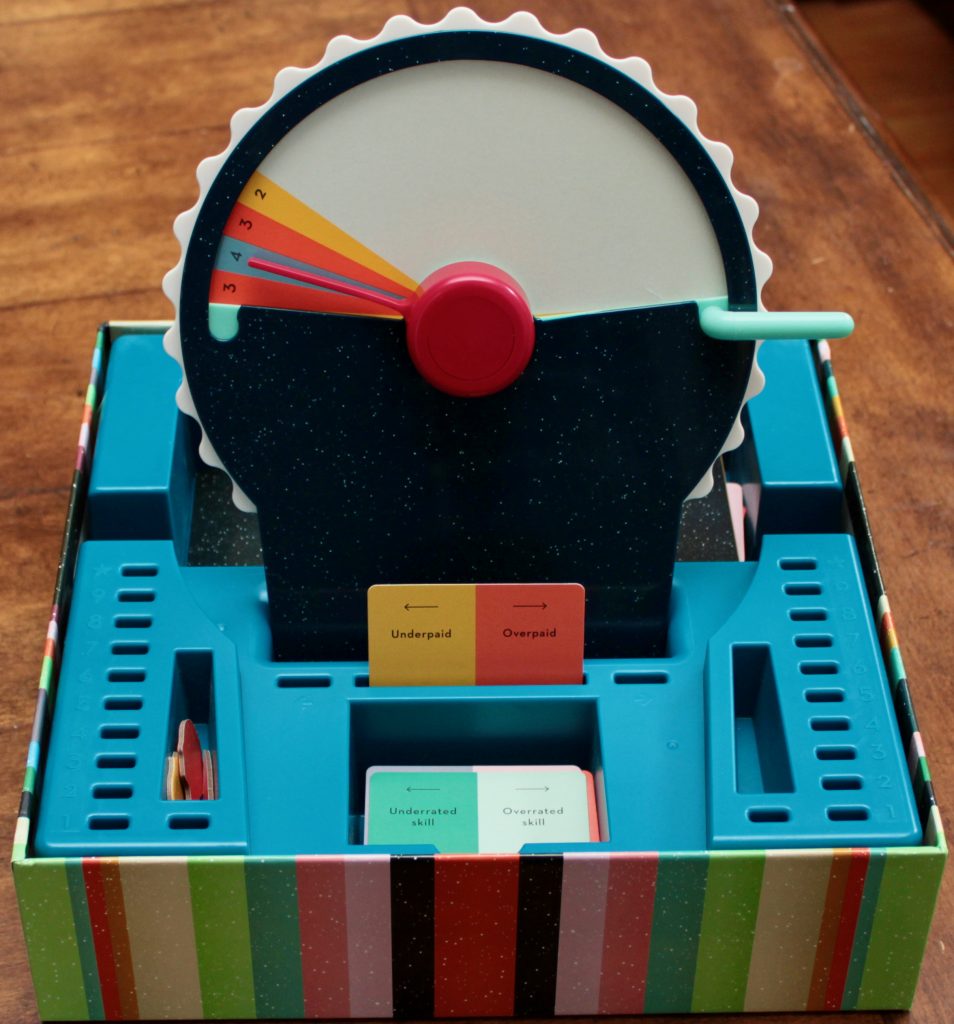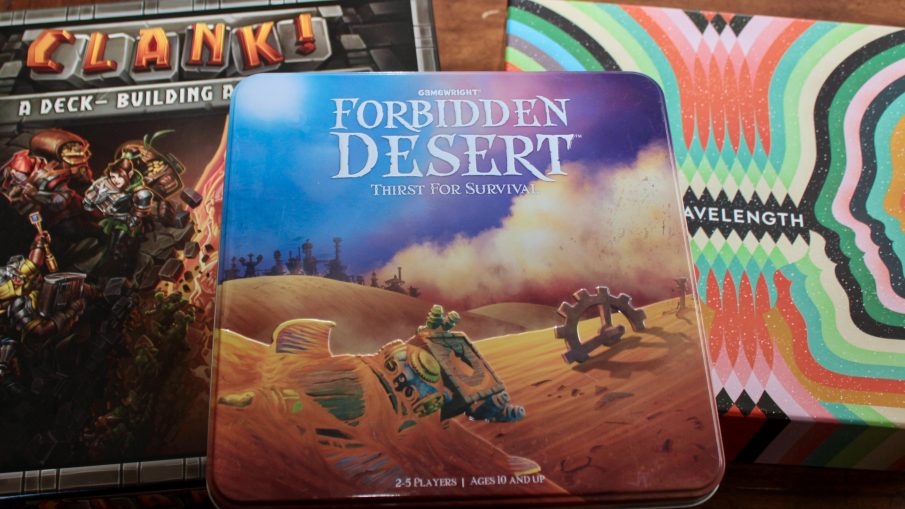Previously, we covered tabletop options to buy to play with an elementary school child, and those you can make at home. Most of those work very well if you have several children of similar capabilities. But many parents are now home with multiple children who are different enough that too competitive a game would alienate a less experienced player in short order. Two solutions are common: removing skill, and playing cooperatively.
Forbidden Desert (2-5 players)–like its slightly older sibling, Forbidden Island, all players work together to try and save everyone from asphyxiation. Each turn, the active player takes four actions to try and find the pieces of a flying machine to escape the desert which becomes ever more dangerous as a sandstorm intensifies. A superb first cooperative game, but younger players might prefer the slightly cleaner design of Forbidden Island.
Pandemic: Fall of Rome (1-5 players)–contrariwise, older players are likely to prefer the more mature theme and complicated strategy of Pandemic: Fall of Rome for their cooperative gaming. It builds on the basic structure of Pandemic, but is a stand-alone game which avoids the perhaps depressing topicality of the original. Rather than flying out of a deadly desert, players defend Rome from the barbarians in tight positional play. The game tends to ramp up the tension such that collective wins are tremendously relieving, but even losses bring the family together.

Animal Upon Animal (2-4 players)–while games requiring stacking wooden pieces definitely require dexterity that can make them challenging for the youngest players, the unusual shapes of the animals to be stacked makes success uncertain even for seasoned hands. Like Wavelength, it’s common for the game to come out for uses other than the intended game, as younger children find the cute animals irresistible. There’s also an amusing tertiary use for adults, as the game becomes hilarious when lubricated by alcohol.

Wavelength (2-12 players)–one player is given a randomly generated point on a spectrum, and must give a clue to get their teammates to choose the right spot. So, for example, a player might have the spectrum Hot – Cold, and have to choose something everyone else will agree is just a bit hotter than the midpoint. You can play as a competitive team game, but, once the game is set up, it usually devolves into an activity in which everyone guesses, because shutting anyone out of the discussion is less fun. Wavelength tends to create the sort of amusement and bonding that Apples to Apples gave when it was new (but does much less now that the cards I have are outdated and my children have drawn me into nonsensical games too often).
Clank! A Deck-Building Adventure (1-4 players)–dungeon delving tends to promote a fairly testosterone-heavy attitude of ever-growing power used primarily to murder ever larger monsters. Clank turns each player into a basically cowardly thief, trying to outdo the others in avarice without taking excessive risks. The trouble is, as soon as anyone skedaddles, they provoke the dungeon’s dragon into attacking every turn, and none of you is the dragon-slaying hero, you’re the running-for-your-lives-from-the-dragon opportunists. While skill at the deck-management element of the game is important, players who think themselves more competent will often find themselves burned by a weaker play who doesn’t get too ambitious. It’s a much lighter tone than many dungeon crawl games, which is why its sequel, Clank! Legacy: Acquisitions Incorporated, so nicely fits into the world created for a Dungeons & Dragons game conceived by two webcomics fellows. If you look into Clank and feel confident it would be a hit with your family, consider the legacy upgrade. It’s more expensive, but has been an absolute blast with my kids, and adds a campaign which will customize your board and components so that every game you play after the campaign finishes will be unique to your copy.
Each of these games has been a hit in my house, and can unite a family across age levels. As with the games in the other articles in this series, though, none of them is essential, and many fantastic alternatives exist.



Still rocking it, Kelsey.
I picked up Forbidden Desert when schools started to close because Pandemic seemed a bit on-the-nose. It’s hit the table a couple times and we have yet to beat it, though we’ve come soooo close once.
Animal Upon animal is great. I like the lubrication suggestion.